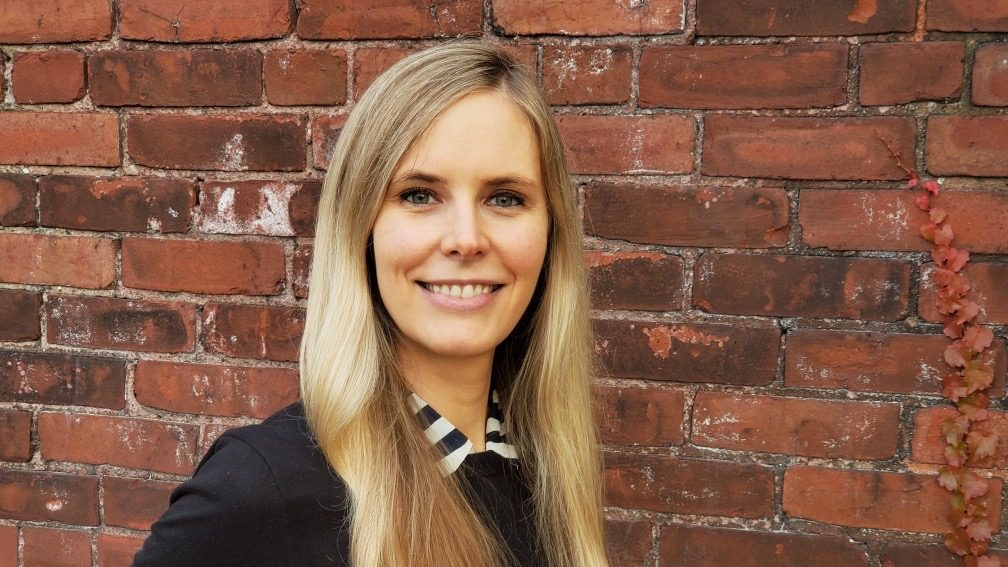A new nonprofit “startup” is emerging from stealth today with $15 million in funding from Ethereum co-creator Vitalik Buterin, with a focus squarely on studying and treating Long COVID.
While the global pandemic may have neared something close to a conclusion for many, millions of people around the world are still suffering long-term effects from COVID-19. Studies suggest that anywhere between 20% and 40% of those who have contracted COVID-19 experience at least some longstanding symptoms, ranging from mild fatigue and “brain fog,” to more serious debilitating conditions such as headaches, sickness, muscle weakness and respiratory problems.
The truth of the matter is that we simply don’t know enough about Long COVID and how best to treat it, which is where The Long Covid Research Initiative (LCRI) is looking to make its mark.
LCRI is spearheaded by a quartet of founders, one of whom is Dr. Amy Proal, a prominent microbiologist at the Polybio Research Foundation with more than 10 years experience studying conditions similar to Long COVID. Proal is accompanied by Henry Scott-Green, a London-based product manager who has been absent from his day job at Google’s YouTube for some time due to Long COVID; Helga Gutmane, an investor at KKR; and Nick Harrold, a former SaaS startup founder.

Move fast and fix things
Scott-Green first contracted COVID in August 2020, and the symptoms he experienced in the months and years that followed include what he calls “crushing fatigue” and brain fog. “I’ve improved significantly over the past year thanks to a variety of treatments — at my worst, I was very seriously unwell and unable to do even basic tasks,” he explained to TechCrunch.
But it was his experiences trying to treat his condition, including working with health professionals, that led him down the path to where he is today — though he feels he has been more fortunate than some other Long COVID sufferers.
“Two years ago, very few people — doctors included — knew about Long COVID, and it was hard to even get a diagnosis,” Scott-Green said. “I have been lucky to eventually make my way to great specialists who have helped me a lot, but many people aren’t so lucky. Getting good quality care is still a huge problem for the vast majority of the huge number of people with this condition.”
Though LCRI is being led substantively from the U.K., officially it belongs to the U.S.-based Polybio Research Foundation, a 501(c)(3) nonprofit organization that focuses on studying complex chronic inflammatory diseases. Despite its nonprofit status, the LCRI founders’ tech backgrounds could serve as the bedrock for something more like a “lean” startup, and solve what Scott-Green calls the “global public health emergency” that is Long COVID.
Indeed, as well-intentioned and rigorous as some of the government-led funding programs and initiatives have been, Scott-Green said that from his experience, things just move far too slowly, which is why LCRI is adopting an operating model more akin to the “urgency and pragmatism” of a startup.
“A Long COVID research program reliant only on government grants would take a long time to show results,” he said. “As a patient, I recognized the need to move faster and bring rapid answers to the enormous number of people who are suffering around the world.”
To support his mission, the founders have amassed an impressive team of researchers and specialists from Harvard, Stanford, Yale, UCSF and John Hopkins University, among other renowned institutions, philanthropists and patient communities, who will work together with a view toward solving Long COVID.
“We’re running as a lean organization that prioritizes fast execution and close collaboration — and generally, and where it makes sense, trying to apply the organizational principles that have allowed tech to deliver big, ambitious projects quickly,” Scott-Green said. “This has allowed us to bring together a team of the world’s best researchers to work collaboratively in a model that isn’t that common, on a mission to solve a disease, and executing a shared research roadmap that addresses the most pressing questions in the space.”

A virtual research institute
The remote, collaborative nature of LCRI — none of the founding team have met in person — essentially makes it a virtual research institute. And it plans to adopt a two-pronged approach to achieving its mission, spanning research and therapeutics.
For the initial research phase, scientists from some of the world’s most esteemed institutions will share their collective expertise and study the disease mechanisms that constitute Long COVID, while follow-on clinical trials will strive to put the research program’s findings into real-world treatments.
None of this comes for free, of course, which is where today’s funding announcement comes into play. Buterin, better known as one of the creators of the Ethereum blockchain, is investing around $15 million in USDC stablecoin via the $100 million Balvi fund, which he set up earlier this year specifically for COVID research projects. Additionally, LCRI has secured commitments from the Chan Soon-Shiong Family Foundation (CSSFF), a charitable body led by surgeon, scientist and billionaire businessman Patrick Soon-Shiong with his philanthropist wife Michele B. Chan.
“Balvi and Vitalik reached out to Amy to ask about supporting her research projects, and the partnership grew from there,” Scott-Green said. “The Chan Soon-Shiong Family Foundation has made an undisclosed donation commitment, which is still under discussion.”
While $15 million gives LCRI a decent start, it likely won’t be enough for the long haul, which is why it’s targeting some $100 million in funding in the coming years — with plans to eventually expand its model to related conditions such as Epstein-Barr virus and enteroviruses. But first, they need to get to grips with Long COVID.
“In one to two years, we want to have raised substantially more funding for Long COVID research and have extensive research and clinical trials programs underway,” Scott-Green continued. “We will have our first results from the research program, and we will be able to use those results to inform our clinical trials efforts. Our sole focus is on finding answers for the people who are suffering with Long COVID, and our goals are to understand the disease mechanisms, and identify treatment options.”































Comment